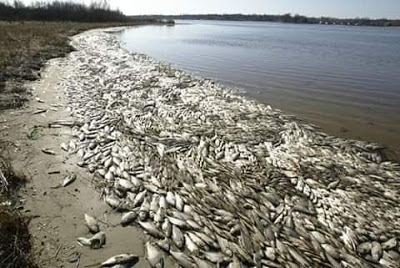However, samples of the fish and water from different locations along the shoreline have been sent to Professor Ibitoru Hart, an expert in hydrobiology and fisheries at the University of Port Harcourt for scientific investigations to ascertain the likely cause of the problem.
Environmental concerns such as this would get attention in discussions on World Earth Day, which usually holds on April 22 yearly.

